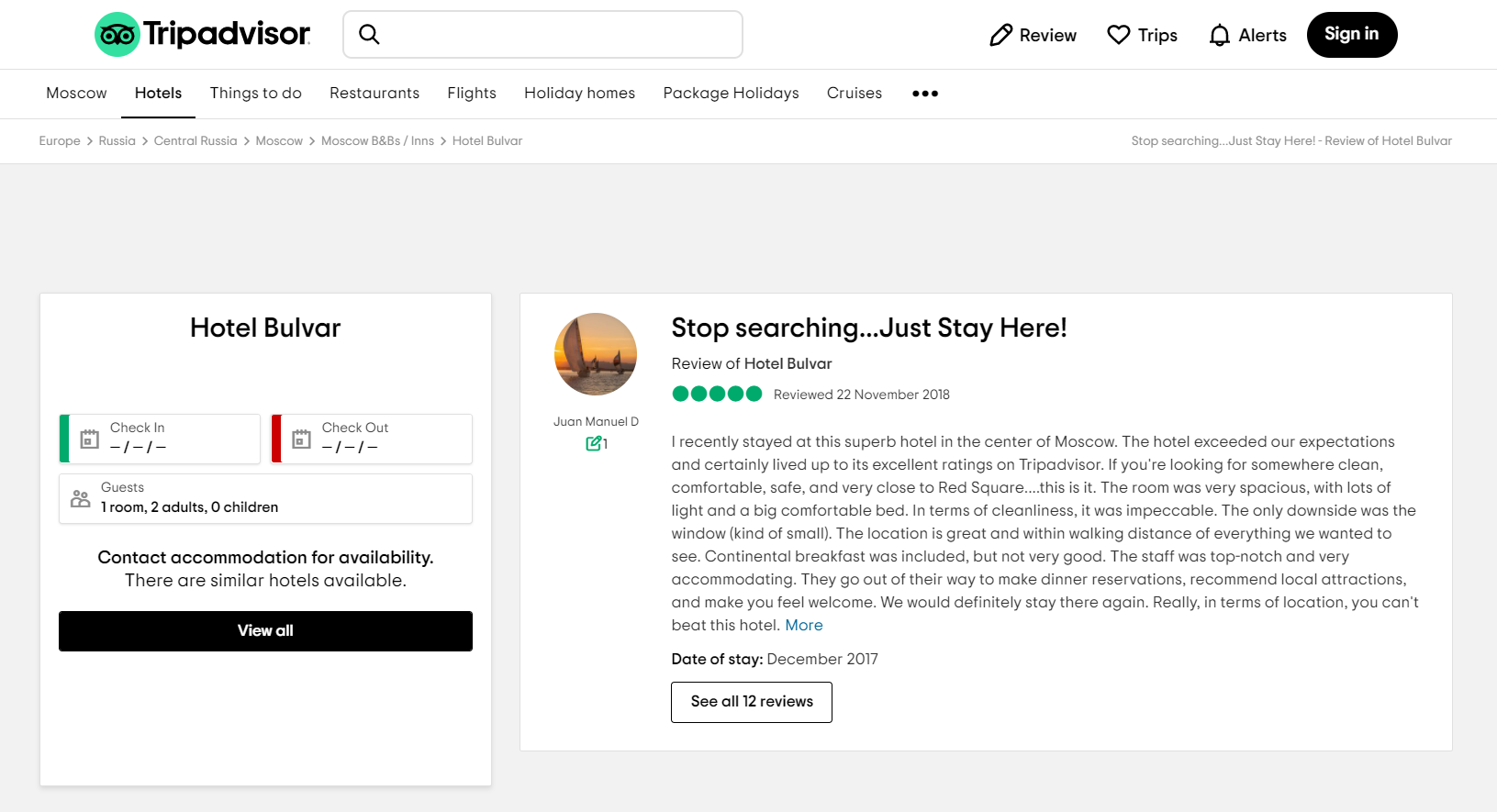I’m a frequent traveler, and over time I’ve inculcated some travel habits, such as going on solo trips on hill stations, planning them a month in advance, booking a budget-friendly accommodation, and travelling light.
If you’ve a property at a beautiful destination and offer special tariffs for solo travelers, then marketing it to me is a good opportunity for you.
You see, every guest, whether potential, frequent, or in-house, follows certain travel habits, and it’s necessary for hotels to identify them.
I know you would be having certain questions such as: What are travel habits? Is it really important to determine them? How to understand travel behavior?
Let me give answers to all your questions in this blog.
Table of Content
What are travel habits?
Travel habits, also known as travel behaviour, can be simply defined as common traits that guests follow while traveling to any destination. It could be booking patterns, requested amenities or services, reasons and frequency of travelling, or any other factor that can help you in understanding your guests better.
Not only this, there are several other reasons why you should be investing time in understanding travel behavior, let’s take a look at them.
Why is it necessary to understand travel behavior?
One of the prime reasons for understanding travel behavior is to know what travelers are seeking around the world. You can even learn some of them from your frequent guests.
Apart from that, it can help you serve your guests more efficiently, as you would be aware of their requirements and expectations from a hotel. This will give you an edge over your competitors and facilitate major guest retention.
Another important reason for identifying travel behavior is effective target marketing. What’s that?
Well, you may be aware of marketing as per guest segment, this is somewhat similar to that. However, this is more of an individual approach, where you target a specific person at a time. If done right, it can benefit you in the long run.
What are the most common travel habits?
The traveler community has evolved over time; so have their travel habits. For instance, before the internet era, people used to plan their journeys 3 months prior.
Moreover, finding a hotel for staying in was either through travel agents, tourism magazines, or referrals from friends and family. I still remember, whenever I traveled with my parents, we used to roam around for hours searching for a perfect place to stay.
As I said, things change with time. Nowadays, people are inclined towards spontaneous travel plans. This has led hotels to promote last-minute bookings amongst such guests.
Before you start understanding travel behavior, let me give you a list of some of the common ones to make your work easier.
- Budget and solo traveling
- Exploring off-beat destinations
- Light traveling
- Visiting local attractions
- Learning and trying regional cuisines
- Opting for free breakfast
- Look for hotels with Wi-Fi
- Search for sustainable staying options
Whilst these are some general traits that can help you, there are some guests’ travel habits that can be a reason for your loss:
- Improper reviews to cash out some extra benefit from hotels
- Stealing from hotel
- Creating unnecessary ruckus
Some of these would’ve been observed by you as well. You can find and list them using the strategies I have mentioned ahead.
How to understand travel behavior?
Without further ado, let’s get straight to addressing the core part of the blog – understanding travel behavior of guests.
1. Check every guest’s booking history
To begin with, analyse your booking history. It’ll help you in identifying which guests have:
- Often opted for last-minute bookings;
- Stayed mostly on weekends or a fortnight only;
- Travelled during season;
- Booked room with the lowest tariff;
- Selected room with CP plan;
- Made booking from the website and OTAs;
- Whether travelled solo or with a group.
Based on such details you can create certain customised packages for your guests and promote them accordingly. Moreover, a personalised package adhering to a particular guest’s preferences is definitely a successful strategy to win them.
2. Analyse orders during previous stay
Another important aspect that needs to be considered in analysing is, food habits. People are now becoming more health conscious and fitness enthusiasts.
In fact, these days, many GenZ and millennials’ travel habits include opting for healthy food whenever they stay in a hotel. In addition to this, most of them are adopting the “Go Vegan” trend.
So, when you are analysing your guests’ profiles, check for their previous orders. Also, don’t forget to see if they have made any particular requests or recommendations which can be implemented at your property.
3. Understand their reviews and feedback
Reviews and feedback are a vital component of a hotel’s online reputation. But did you know, they can be used for understanding travel behavior?
Yes, indeed, they can be. Let’s take this review for an instance.
If you see, the guest (Mr Juan) is quite satisfied with the cleanliness of the hotel. However, if you read further, he opted for CP plan, but didn’t find the breakfast upto his expectations.
Now, when you market your property to him, you can emphasise on the breakfast part. Moreover, you can offer a complimentary one for this previous experience.
Similarly, you need to analyse your hotel’s reviews from multiple OTAs to understand travel behavior of your guests. Investing in a reputation management software would ease out this task for you and save your efforts as well.
Also, go for compset analysis. All you need to do is see what your guests have to say about your competitors.
Their most criticised factors could prove to be the best weapon in your arsenal while target marketing.

4. Use survey forms
I’m sure you’d be urging your guests to share their review on the online booking platforms. But it’s uncertain that they would do it or not.
So, why not collect their feedback at the property itself. No, not on those platforms, but internally, for further analysis.
I used to do this during my internship. Every time a guest would come to the reception for checking out, we had a protocol to give guests a survey form. It would have simple MCQs regarding experience they had at the property and what can be done to make it better.
Next day our manager would analyse them, and brief us during meetings on what steps can be taken to enhance that guest’s experience during the next visit.
And guess what, it worked. We identified a travel habit of one of our frequent guests. He always booked a room for single pax and opted for one with a balcony to smoke up.
Eventually, next time he visited us, we offered him a perfect room without even him asking for it. Results? Happy guest, improved brand loyalty, and better guest satisfaction.
So, consider this example and use this step for understanding the travel behavior of your guests.
5. Keep yourself updated with trends
The points I’ve mentioned above are mainly useful for understanding the traits of your hotel’s guests. Let me tell you how you can understand the travel behavior of tourists across the world.
I always say, “Either be the trend, or follow it”. In this digital era, being in trend is the next big thing.
The best way to find out about them is by bringing social media to your aid. All you need to do is just follow hashtags and accounts that are relatable to your business, such as:
- #hotel
- #hoteltrend
- #trending
- #trendinghotels
- #hotelguests
- #traveltrend
- #travelcommunity
- #hospitalitytrends
Once you start following them, you’ll get the posts pertaining to them in your feed. You can see why guests are recommending other hotels, what kind of services those properties offer, and try to implement them at your property.
For example, many guests have a habit of posting pictures of the view from their hotel’s room on social media. If you have such USP at your property, it’s time to market it to such travelers.
Another way is staying in touch with bloggers. You can bookmark some of the famous hospitality and tourism blogs websites to stay updated with travel trends and deploy the feasible ones at your hotel.
6. Connect with travel agents for insights
Travel agents have been a crucial part of the hospitality industry for a long time. From getting hotels booked over multiple calls to handling reservations with mere clicks, they’ve seen an evolution in guests’ travel habits over the period.
You should connect with them and learn about what kind of bookings and hotels, travelers are looking for. Check if they have guests looking for a particular amenity or facility that you can cater to.
7. Don’t forget OTA Managers
Last but not least, OTAs. There’s no doubt that they generate a huge chunk of business for hotels, and over the last few years, their popularity amongst travelers has grown exponentially.
If you want to understand guests’ travel behavior across the world, OTA managers are one of the sources to learn about them. They are usually in touch with major hotels and often analyse them to guide hoteliers on how they can increase bookings.
It could be either by promoting most sought room meal plans, any specific room category, last-minute offers, or some other factor as per the market demand. Staying in touch with them will help you in understanding the ongoing travel traits which can be used for further benefits.
Conclusion
Analysing guest habits is one of the important steps which hoteliers generally tend to miss. This leaves them unaware of the expectations and demands of the guests from across the world.
If you are not doing it, it’s time to understand the travel behavior of your guests. Use the steps I’ve mentioned in this blog and get started.




